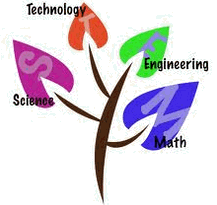|
|
|
|
|
|
|
News & Views item - May 2013 |
![]() ScienceInsider: "Corporations, NSF Team Up to Improve STEM Retention
Rates." (May 14, 2013)
ScienceInsider: "Corporations, NSF Team Up to Improve STEM Retention
Rates." (May 14, 2013)
 Could
it happen in Australia? While Australians are about to find out what the
2013/14 Federal Budget will bring and academics brace themselves for further
governmental reductions in funding, ScienceInsider's Jeffrey Mervis
reports that the "Graduate 10K+" initiative is being funded not by taxpayers but
by Intel and GE (The Graduate 10K+ name is a nod to President Obama's goal of
producing 1 million more STEM graduates by 2020.).
Could
it happen in Australia? While Australians are about to find out what the
2013/14 Federal Budget will bring and academics brace themselves for further
governmental reductions in funding, ScienceInsider's Jeffrey Mervis
reports that the "Graduate 10K+" initiative is being funded not by taxpayers but
by Intel and GE (The Graduate 10K+ name is a nod to President Obama's goal of
producing 1 million more STEM graduates by 2020.).
Admittedly the $10 million was far short of the goal. Intel CEO Paul Otellini was able to persuade only one of his peers, GE's Jeff Immelt, to chip in. So the resulting pot is 10% of the $100 million the CEOs were expected to pony up.
Mr Mervis writes:
[L]ast week... NSF held a glitzy Washington, D.C., press event to announce $10 million in grants to nine university-based projects designed to lower dropout rates among minorities, women, and low-income students in computer science and engineering... The new program also had to scale a mountain of federal red tape. The issues included ensuring that the gift...went for its intended purpose, creating a template for handling future gifts, and defining the proper supporting role for the companies in a program that NSF will manage. "It's not just the money, although we are deeply appreciative of that," says Kelvin Droegemeier, vice chair of NSF's oversight body, the National Science Board... This is also a new programmatic structure, a way of increasing the country's investment in the next generation of computer scientists and engineers."
The money... will give grantees a chance to test a variety of strategies designed to help students overcome obstacles to academic success, especially in the first year.
Mr Mervis, however, also sounds a note of caution: "Despite the prominent launch, the Graduate 10K+ program faces an uncertain future. The president's 2014 budget requests a small increase for a cluster of undergraduate programs that includes the Science, Technology, Engineering, and Mathematics Talent Expansion Program, and NSF officials say they hope to find money for a second round of awards. But any growth in federal funding may be difficult in the current tight budget climate, and no other companies so far have jumped into the breach."